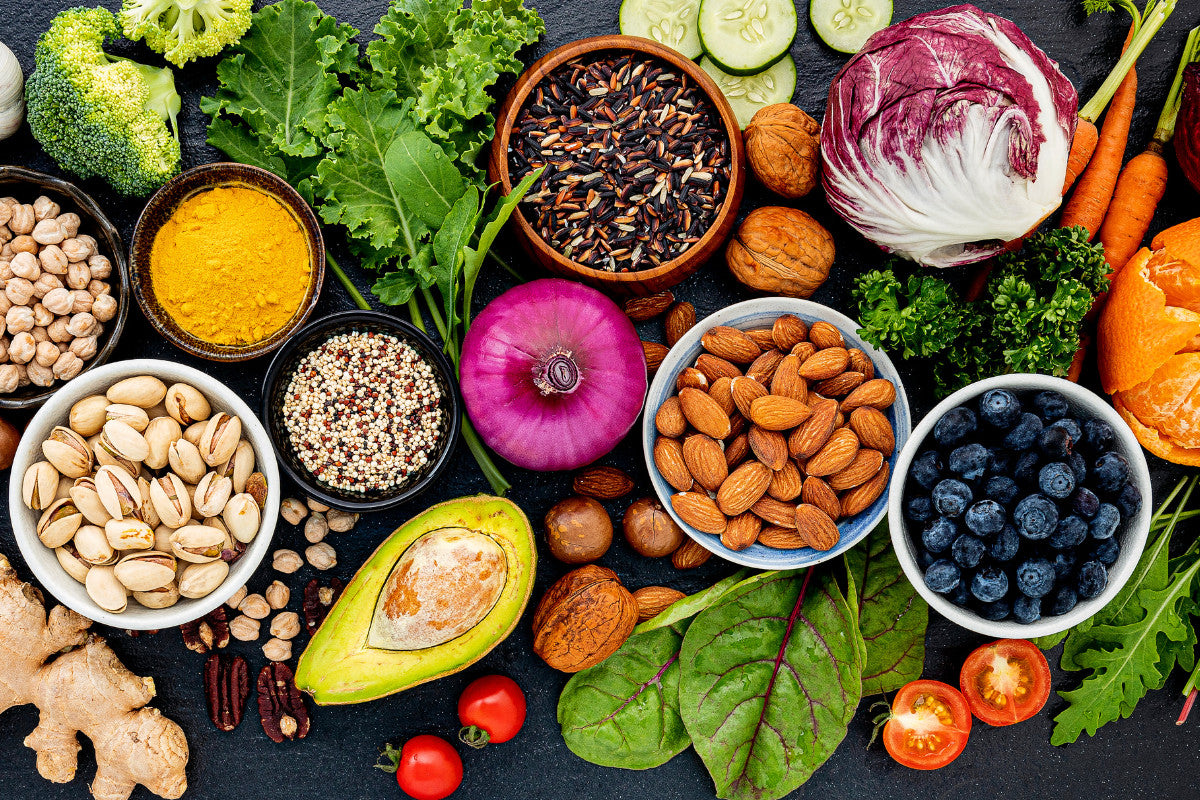Your Cart is Empty
FREE SHIPPING OVER $45 & RETURNLESS REFUNDS
FREE SHIPPING OVER $45 & RETURNLESS REFUNDS

If you’ve ever wondered what foods could help—or hinder—your fibromyalgia symptoms, you’re not alone. Mary L.’s question really sparked a deeper dive into how nutrition can impact overall well-being, especially for those dealing with chronic pain.
Fibromyalgia is a complex condition that affects the nervous system, leading to widespread pain, fatigue, and discomfort. While there’s no one-size-fits-all diet, many people find that certain foods can either aggravate symptoms or provide relief. That’s where making smart choices can really make a difference!
🐟 Fatty Fish (Salmon, Mackerel, Sardines): These are rich in omega-3 fatty acids, which have anti-inflammatory properties that may help reduce pain and stiffness over time. Try grilling salmon or mackerel with some fresh lemon juice and herbs for a flavorful, anti-inflammatory meal.
🥬 Leafy Greens (Spinach, Kale, Swiss Chard): Packed with vitamins and minerals like magnesium and vitamin K, these greens can help alleviate inflammation and improve muscle function. Toss spinach or kale into soups, smoothies, or sauté with olive oil and garlic for a simple, anti-inflammatory side dish.
🥜 Nuts and Seeds (Almonds, Walnuts, Chia Seeds): High in antioxidants and healthy fats, nuts and seeds can help reduce inflammation and improve muscle function. Add chia seeds to overnight oats or sprinkle walnuts on your morning yogurt for a crunchy, nutrient-packed boost.
🍯 Turmeric: Known for its anti-inflammatory properties, turmeric can easily be added to smoothies, teas, or even savory dishes to support joint health.
🍓 Berries (Blueberries, Strawberries, Raspberries): Rich in antioxidants, berries help combat oxidative stress and reduce inflammation, promoting better overall well-being. Enjoy fresh berries with a drizzle of honey or toss them into a spinach and chia seed salad for a delicious, antioxidant-rich meal.
🌾 Whole Grains (Brown Rice, Quinoa, Oats): High in fiber and essential nutrients, whole grains support digestive health and may help reduce inflammation.
🍟 Sugary Snacks and Processed Foods: High sugar intake can lead to spikes in blood sugar levels, contributing to increased inflammation and discomfort. Minimizing processed sugars helps maintain steady energy levels and reduces joint pain.
☕ Caffeine Overload: While moderate amounts of caffeine are fine, excessive consumption can lead to dehydration and increased joint discomfort. Try to limit or avoid large amounts of coffee or energy drinks.
🧂 High-Sodium Foods: Excessive salt intake can cause water retention and inflammation, worsening symptoms for those with fibromyalgia.
Making small, mindful changes to your diet can have a big impact. Here are a few simple swaps to consider:
In addition to focusing on your diet, staying hydrated, getting regular movement, and managing stress can support your journey toward better health. Combining these with the right nutrition can offer a well-rounded approach to managing fibromyalgia symptoms.
Mark
If you’re looking for more tips or have specific questions, feel free to email me at mark@outbackoil.com or drop a comment below.
**Always consult your healthcare provider or a registered dietitian before making significant changes to your diet.